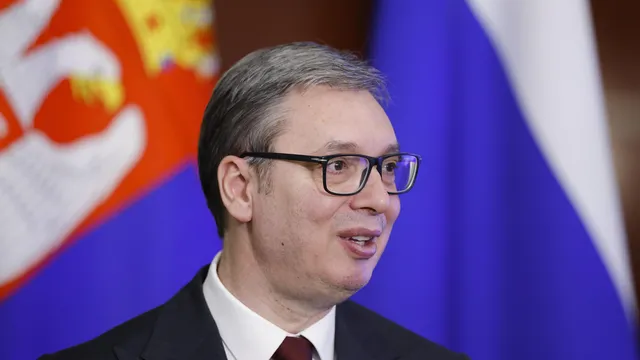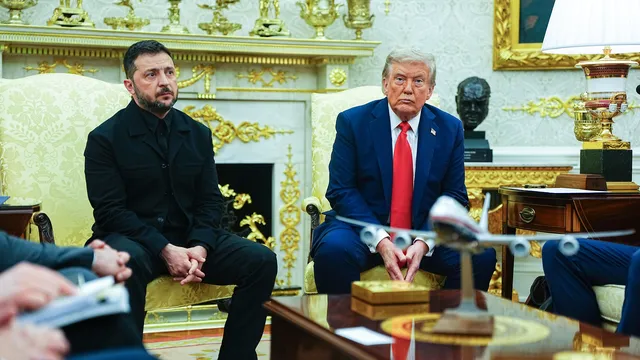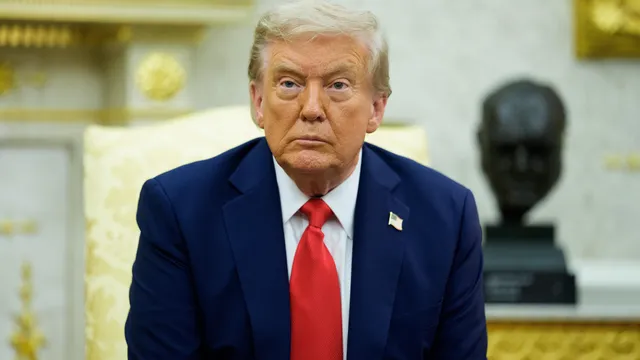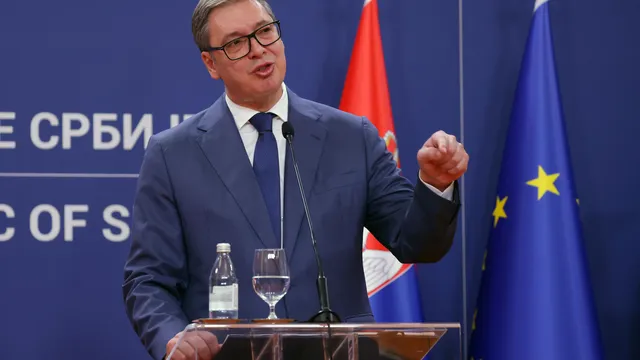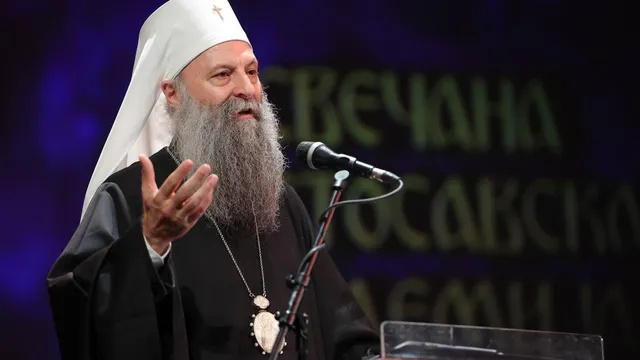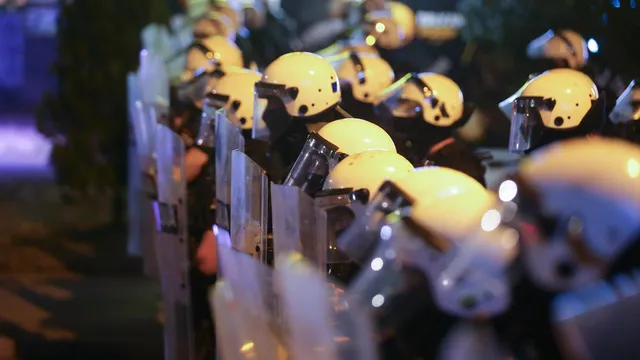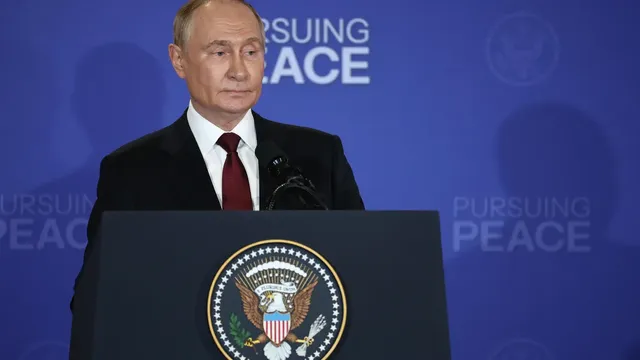Hardly a day passes in Serbia without someone mentioning the term “deep state.” It appears in various contexts and for different purposes, most often to obscure and mystify the complete collapse of the country’s institutional system or to inject into the public sphere an array of mostly meaningless, and at best, absurd conspiracy theories. This is exactly what Vučić’s regime attempted to do during the recent protests.
In Serbia, the first and only “reform” any government undertakes is changing the laws. Everything else remains the same because the aim is to tailor legislation to benefit a small group of people who enrich themselves through state contracts thanks to their proximity to the president, prime minister, ministers, or ruling party. Every government creates its own oligarchs — and Vučić’s administration is no exception.
The term “deep state” is often linked to significant political events — from the kidnapping and murder of Ivan Stambolić and the assassination of Slavko Ćuruvija to the killing of Zoran Đinđić and two failed assassination attempts on Vuk Drašković. In all these cases, members of the state apparatus — particularly from former security and criminal structures — were involved, something proven in court proceedings.
Many theories about the “global Western conspiracy” against Serbia and the Serbian people are rooted in a narrative that Serbia allegedly refused to become Europe’s “dumping ground” for waste, migrants, old cars, and everything else undesirable. Added to this are the most fantastical and absurd hypotheses imaginable — what the author sarcastically calls “endless nonsense,” borrowing his grandmother’s saying: “You blurt it out — and live.”
A significant number of these conspiracy theories stem from the works of the late law professor Smilja Avramov and her analyses of the Bilderberg Group meetings — annual gatherings of the world’s most powerful presidents, prime ministers, business leaders, and influential figures (mostly from the West). Among the participants was former Serbian Prime Minister Ana Brnabić (in 2018), while President Vučić himself is a regular guest at the World Economic Forum in Davos.
Regime-controlled tabloids and television stations play a central role in spreading the most outlandish conspiracy theories and distorted representations of reality — particularly concerning international relations, Serbia’s global position, and the alleged influence of foreign powers on domestic affairs. President Vučić, as the country’s primary media figure, actively fuels these narratives, frequently blaming the “deep state” and a “global conspiracy against Serbia” to justify legal violations. Through this, he deliberately manipulates public fears, creating daily psychological pressure and blaming “invisible forces” — such as during the student protests — for his failures, including the complete collapse of economic policy. The irony is that the same president regularly meets with the very actors he claims are “working against Serbia,” thanking them profusely for their “support.”
However, more dangerous than Vučić’s propaganda is what he does from his position as president — the systematic dismantling and obstruction of state institutions through the unlawful and unconstitutional usurpation of their powers. In practice, he is attempting to embody the utopian concept of a “state in decline,” centralizing all power within himself. Vučić simultaneously plays the roles of president, prime minister, minister, judge, prosecutor, police officer, banker, engineer, doctor, pilot, firefighter, baker… the only thing he hasn’t become is a pharmacist.
Paradoxically, Vučić has effectively become the “deep state” — an institution undermining the state from within, occupying a position intended to protect it but instead systematically destroying Serbia’s institutional order, government authority, judicial independence, prosecution integrity, law enforcement, and all other pillars of governance.
His primary objective is building a personal cult of personality — one greater even than Tito’s and Stalin’s combined. Achieving this is no easy task, but with complete control over the state apparatus and a 24/7 propaganda machine (including state broadcaster RTS), Vučić has managed to prolong his grip on power and manipulate public perception effectively.
In recent years, the government has also created an extensive network of so-called GONGOs — “government-organized NGOs” — along with dozens of media outlets. For example, the state-owned company Telekom Srbija funds 20 television channels, circumventing laws prohibiting direct state ownership of media. These outlets are used almost exclusively for regime propaganda, with so-called “analysts” from newly formed manipulation centers parroting Vučić’s rhetoric word for word.
Simultaneously, Vučić has been building a parallel state — establishing alternative bar associations, judges’ councils, media groups, sports federations, construction chambers, and even a rival Serbian Academy of Sciences and Arts, claiming the existing one has “fallen out of control.” Trade unions have been stripped of power and reduced to empty shells, while workers’ rights have been practically erased.
At the same time, a systematic media hunt is being waged against critics of the regime. National broadcasters like Pink, Happy, Prva, and B92 — along with tabloids such as Informer, Srpski Telegraf, Večernje Novosti, and Blic — play a leading role in this campaign. Meanwhile, RTS avoids critical topics entirely, crafting an alternate reality for the Serbian public.
The result is a state of institutional anarchy — a government apparatus making unlawful, chaotic, and often senseless decisions. A country unable to guarantee the safety, justice, and property rights of its citizens effectively ceases to function as a state. According to the author, Serbia has now become Vučić’s personal project — a place he calls “Vučićevac.”
In this context, the narrative of a “deep state” supposedly working to overthrow Vučić is nothing more than a convenient myth. In reality, what we are witnessing is the collapse of Serbia’s institutions under a leader who presents himself as the country’s sole savior — while consolidating absolute power in his own hands.
---
Analysis by Aleksandar Roknić, published in the Serbian daily Danas

 Breaking news
Breaking news
 Europe
Europe
 Bulgaria
Bulgaria
